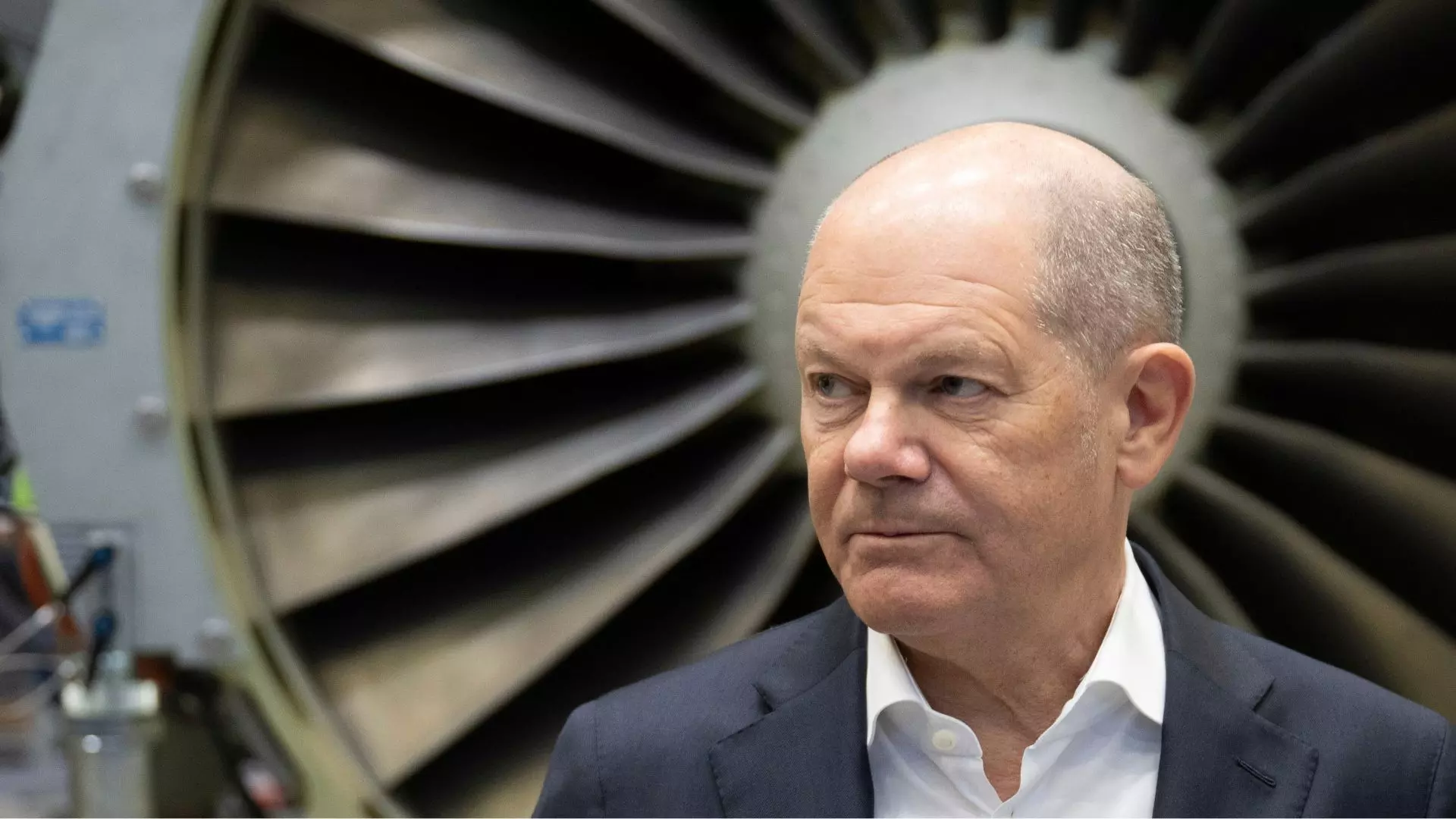Krishnan Srinivasan | Political instability growing in Europe: Germany faces poll amid global churn

Two leading European Union countries are both under severe internal pressures -- France with its fourth Prime Minister in 2024, and Germany facing a snap poll that will take place in a particularly challenging global context. In addition to the ongoing Nato-Russia tussle in Ukraine straining Berlin’s diplomatic and economic position in Europe, it is also facing problems in dealing with trade with China.
Early elections are rare in Germany, with only few precedents, but national elections which were due in September 2025 will now be advanced to February 23.
This comes as no surprise after the coalition’s uneasy three years in office; the “traffic light coalition” comprising the red of Chancellor Olaf Scholtz’s Social Democrats (SDP), yellow of the Free Democrats (FD) and green of the Green Party (Grune) was in growing political and economic difficulty.
The proximate cause of Germany’s political difficulties was its support for embattled Ukraine, when Mr Scholz instructed finance minister Christian Lindner to ignore the debt brake so that the Chancellor could add another $15.7 billion for Ukraine in addition to the $8.4 billion already donated this year, possibly to compensate for not donating long-range Taurus missiles to Kyiv. The Free Democrats refused and Mr Lindner was dismissed because he was considered more party-oriented than nationalist. Meanwhile, the Greens have been consistently
difficult for Mr Scholtz over the years. The coalition suffered severe losses in recent regional elections in Thuringia and Saxony, and much of the coalition’s financing was from the fund meant for Covid-19 and thus of doubtful legitimacy.
On December 16, 2024, Chancellor Scholz called for, and lost, a no-confidence vote because he no longer had a majority and the non-ideological coalition of Social Democrats, Greens and Free Democrats was dysfunctional. Unable to pass his 2025 Budget, Mr Scholtz is now a lame-duck caretaker.
After the retirement of Chancellor Angela Merkel, an European leader and crisis manager for 16 years till 2021, Mr Scholtz’ personality is by contrast considered colourless and without impact; with a low popularity rating, the SPD seems headed for its worst-ever election result at 16 per cent while its Green coalition partners are polling even lower at 13 per cent.
Germany is Europe’s biggest country and economy, but is now in decline, with recession for two years in succession due to multiple problems; the West-led Russian sanctions and loss of cheap energy, leaving nuclear energy seen as the only answer; and 40 per cent of the electorate comprising senior citizens and pensioners with public worries about inflation when German growth is only 0.2 per cent, the weakest in the G-7. There is a cost-of-living crisis, with the economy struck by self-imposed budgetary constraints that rule out stimulus policies, and EU’s tariffs against Chinese electric cars that have led to Volkswagen, a national symbol and Germany’s biggest employer in the vital but declining car-making sector, ending its job guarantee and preparing for plant closures and mass lay-offs for the first time in the company’s history.
The incoming German government will probably be a coalition of pro-EU, pro-Ukraine, centre-right and centre-left CDU and SDP, since all the historic major parties refuse to work with the increasingly popular Alternative for Germany (AfD), now lying second in the polls and which in September last year became the first far-right party to win a German state election since the Nazi era.
AfD was the indirect cause of the latest political storm, since the established political parties have expressed outrage at US technology magnate and outspoken Trump supporter Elon Musk, accusing him of interfering in the next election through his praise for the AfD. Mr Musk is accused of claiming in the conservative World on Sunday (Welt am Sonntag) paper that Germany was teetering on the brink of economic and cultural collapse, and that only AfD could revive Germany’s economy and prevent a loss of identity through a controlled immigration policy. In the article, Musk also praised the AfD’s approach to regulation, taxes and market deregulation.
In Germany, the media are obliged to observe the principles of objectivity, impartiality and diversity of opinion. However, this does not exclude the possibility of individuals expressing opinions in commentaries that could be interpreted as editorial endorsements. Musk’s comments caused a government spokesperson to riposte that “it is a fact that Elon Musk is trying to exert influence on the parliamentary election [whereas] the country’s elections are a matter for Germans”, recalling that various AfD branches had been labelled extremist by Germany’s domestic security agency and “hostile to democracy”.
Friedrich Merz, Christian Democrat (CDU) leader, currently in Opposition, who leads the polls ahead of the election, agreed with the government on Mr Musk’s views. Germany is one of the biggest funders of Ukraine, and Mr Merz is a strong Ukraine supporter, and regarded as a financial expert. He enjoys the hopes of the aging electorate that he could revive the economy, which will of course depend on his election mandate, and given that when Donald Trump takes over the US presidency, the EU will try to convince Washington it will provide the money in a fiscal transfer to buy American weapons to support Ukraine.
Other election factors are the far-right and far-left represented by right wing AfD, the left-conservative Reason and Justice BSW of Sarah Wagenknecht and the leftist Die Linke party who are allied on the causes of severely restricting immigration and making peace with Russia. The immigration context is that Germany took in a million Syrians and more Ukrainians than any other EU nation, with the resulting strong sentiment that it cannot and should not take any more.
The next few months will be decisive for France and Germany; either greater economic and political stability, or a crisis of even more formidable proportions.

